Brake Pad Replacement – What You Need to Know
If you hear squealing, feel a soft pedal, or see a vibration when you brake, it’s probably time to think about replacing your brake pads. Ignoring the signs can lead to costly damage to rotors and even reduce stopping power, which isn’t safe. Below we break down the basics, tell you how to spot worn pads, compare options, and decide whether a DIY job or a visit to Northwich Tyres Centre makes more sense.
How to Tell Your Brake Pads Need Replacing
Most drivers notice at least one of these clues:
- Squeal or squeak: A high‑pitched noise usually means the wear indicator is touching the rotor.
- Grinding: A metal‑on‑metal sound means the pads are gone and the rotors are wearing down.
- Soft or spongy pedal: The pedal may travel farther down before the car slows.
- Pulsing brake pedal: This can signal warped rotors, often caused by worn pads.
- Visual check: Look through the wheel spokes. If the pad thickness is less than 3 mm, replace it.
Don’t wait for a complete failure. Replace pads as soon as you spot any of these signs.
Choosing the Right Pads and Getting the Best Price
There are three main types of brake pads:
- Organic (non‑asbestos): Quiet, cheap, but wear faster.
- Semi‑metallic: Strong, good for heavy‑duty use, a bit noisier.
- Ceramic: Clean, long‑lasting, more expensive.
Pick the type that matches your driving style. Daily city drivers usually do fine with organic or ceramic pads, while drivers who tow or hit the track prefer semi‑metallic.
Price varies from £30 for basic organic sets up to £120 for high‑performance ceramic. Labor at a garage typically adds £50‑£80. If you’re comfortable with tools, a DIY swap can save the labour cost.
Here’s a quick cost check‑list:
- Pad set price – check a few local shops or online.
- Rotor condition – if they’re scored, you might need new rotors (£70‑£150 each).
- Tools – you’ll need a jack, lug wrench, C‑clamp, and possibly a brake caliper tool.
Northwich Tyres Centre offers a free brake inspection, so you can walk in, get a quote, and decide whether to let the pros handle it or pick up the parts for a DIY job.
When you do it yourself, follow these steps:
- Park on a level surface, set the parking brake, and loosen the wheel nuts.
- Jack up the wheel and remove it.
- Compress the caliper piston with a C‑clamp, then unbolt the caliper.
- Take out the old pads, clean the caliper with brake cleaner, and install the new pads.
- Re‑assemble, torque the wheel nuts, lower the car, and pump the brake pedal a few times before driving.
If any step feels unsure, it’s safer to let a professional do it. A bad installation can affect braking distance and cause uneven wear.
Bottom line: listen to your car, check pad thickness regularly, and compare pad types and prices before deciding. Whether you go DIY or visit Northwich Tyres Centre, getting fresh brake pads installed on time keeps you safe and saves money in the long run.
 24 November 2025
24 November 2025
Can You Replace Just One Set of Brake Pads? Here's What Mechanics Really Say
Replacing just one set of brake pads might seem like a money-saver, but it’s unsafe and can lead to bigger repairs. Mechanics always replace pads in pairs for balanced braking and safety.
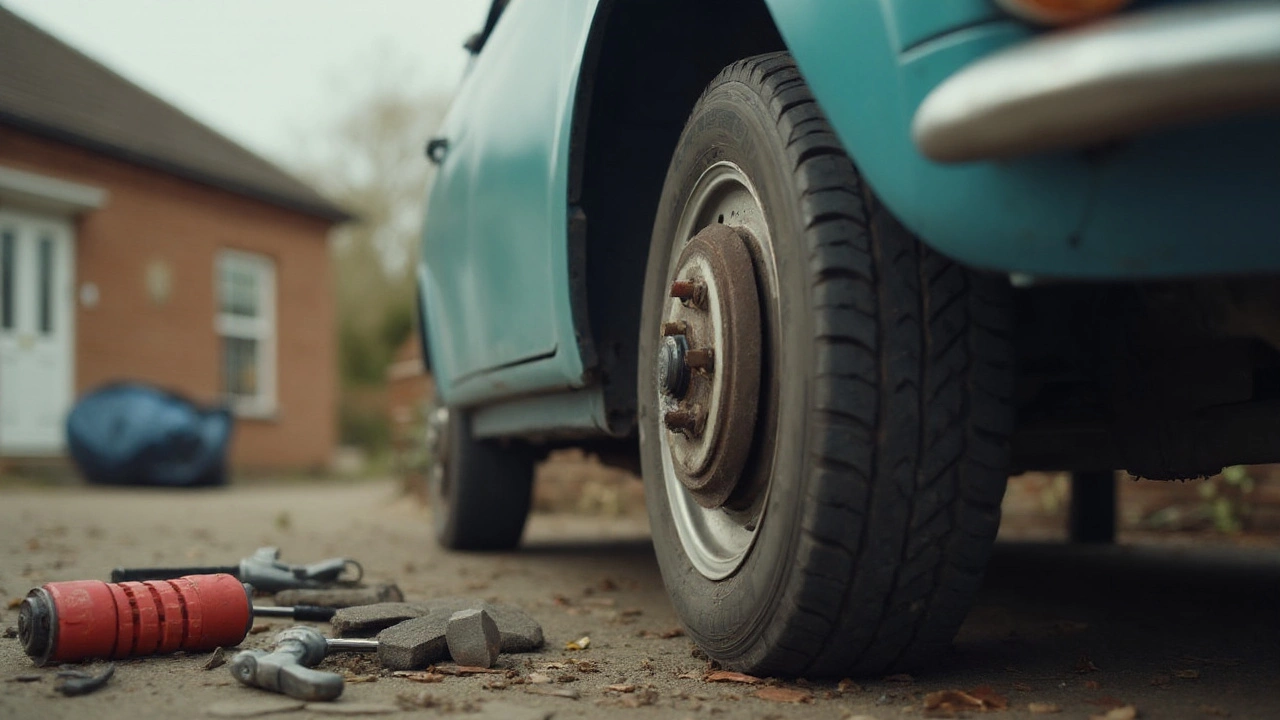 7 August 2025
7 August 2025
Is It Safe to Change Only Rear Brake Pads? Expert Tips for Car Owners
Wondering if you can just change the rear brake pads? Get practical info, real tips, and put safety first. Find out why, when, and how to make the right call.
 18 May 2025
18 May 2025
Brake Pads: How to Tell When It's Time for a Change
Spotting when your brake pads need replacing isn’t always obvious, but it’s critical for your safety and wallet. This article breaks down exactly how to recognize the key signs before you’re left with a costly repair or worse, an accident. Learn what noises, sensations, and even dashboard warnings mean trouble. Check out practical tips you can use right now—no car expertise needed. Make smart decisions and keep your brakes working like they should.
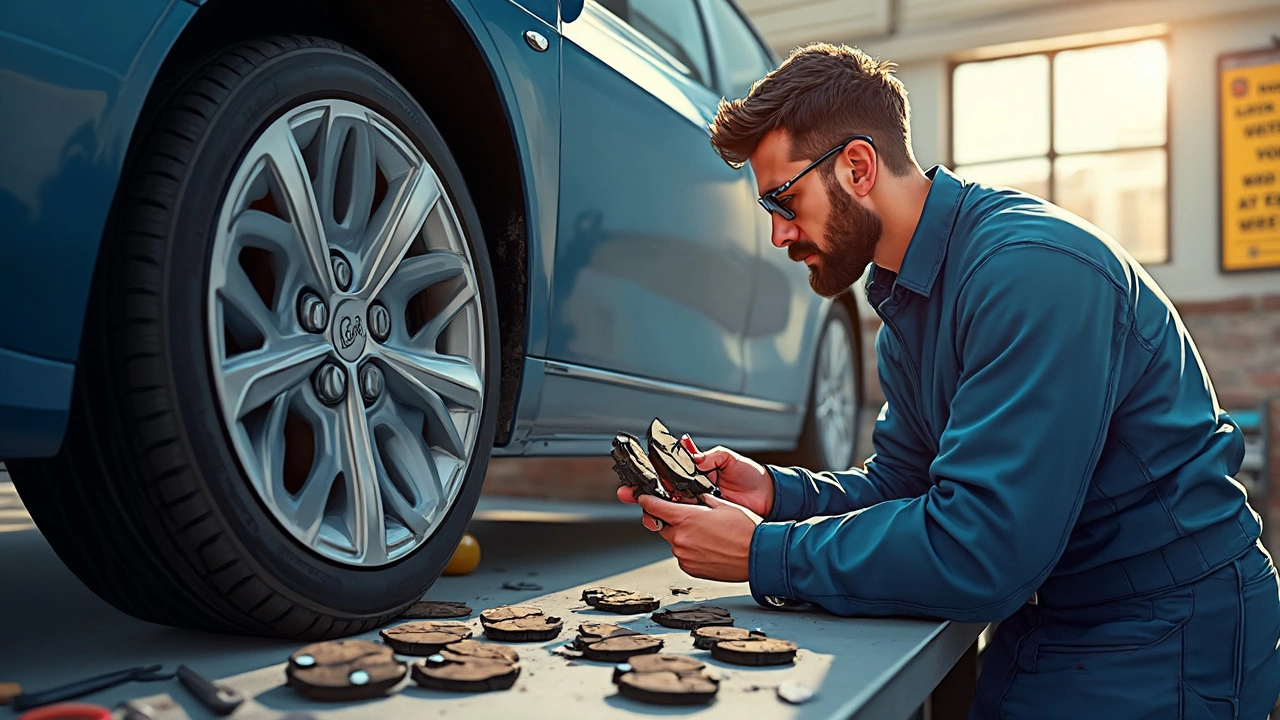 25 April 2025
25 April 2025
Is it Worth Replacing Brake Pads? Here’s the Real Deal
Wondering if you should bother replacing your brake pads? This article breaks down why it matters more than you might think. Find out what happens if you delay, how to spot the signs that your pads need changing, and tips to save money without cutting corners. Learn how brake pad replacement can impact your wallet, safety, and car performance. Get clear, practical advice before you hit the road.
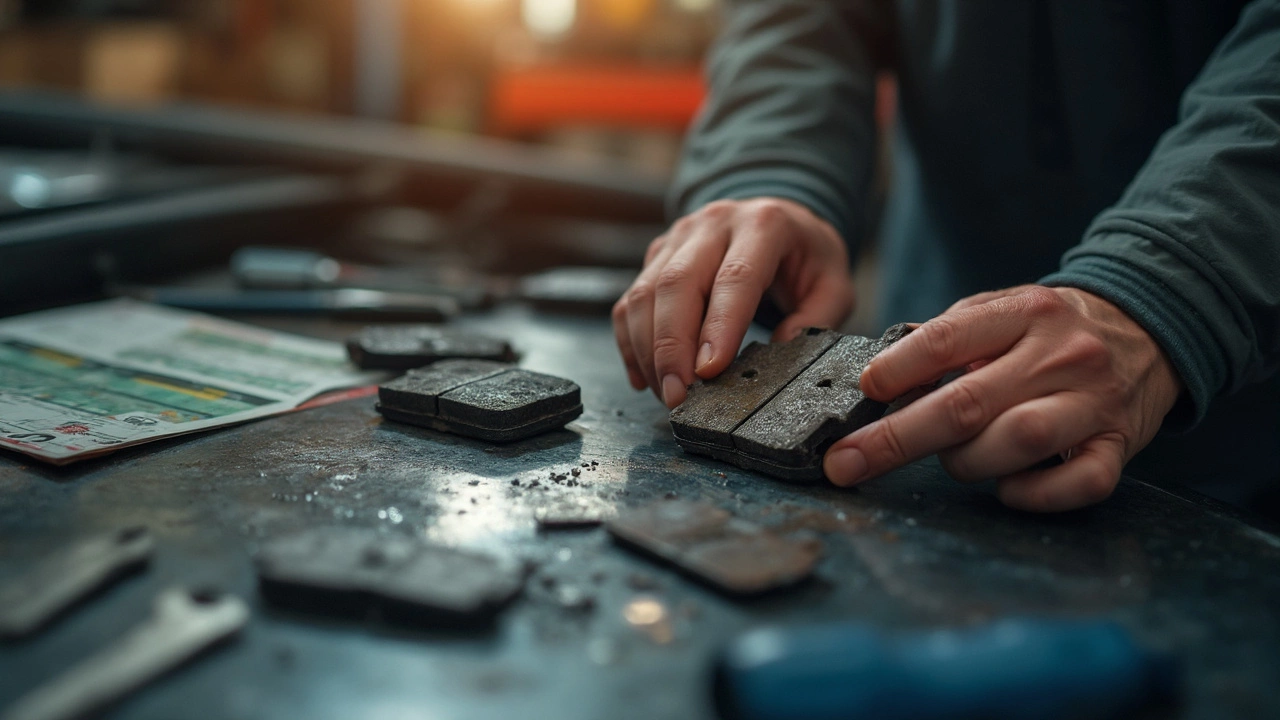 24 April 2025
24 April 2025
Brake Pads: How Often Should You Really Replace Them?
Wondering how often to change your brake pads? This guide cuts through the guesswork, with clear info about when to replace them, what signs to watch for, and how your driving style affects their lifespan. You'll also get practical tips to help your brake pads last longer. Keep your car safer and your wallet happier. Know exactly what to expect instead of waiting for that dreaded squeal.
Latest Posts
-

Best Repair for a Cracked Radiator: What Actually Works?
-
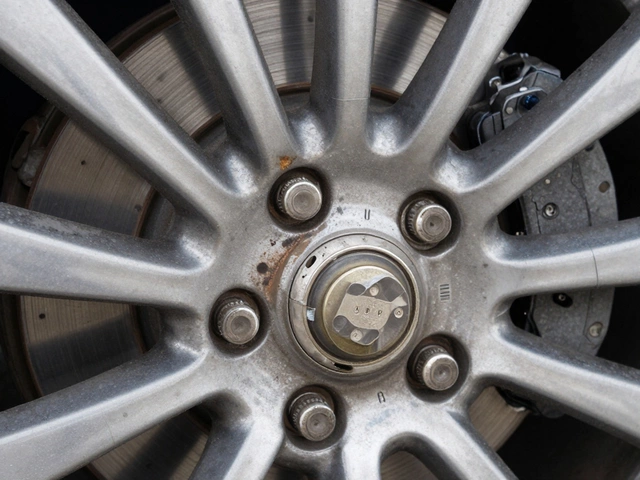
How Many Miles Do Brake Pads Last? Real-World Expectations and Signs You Need New Ones
-

When to Avoid Full Synthetic Oil: Risks, Myths, and Real-World Scenarios
-

Car Radiator Costs Explained: How Pricey Are Replacements in 2025?
-
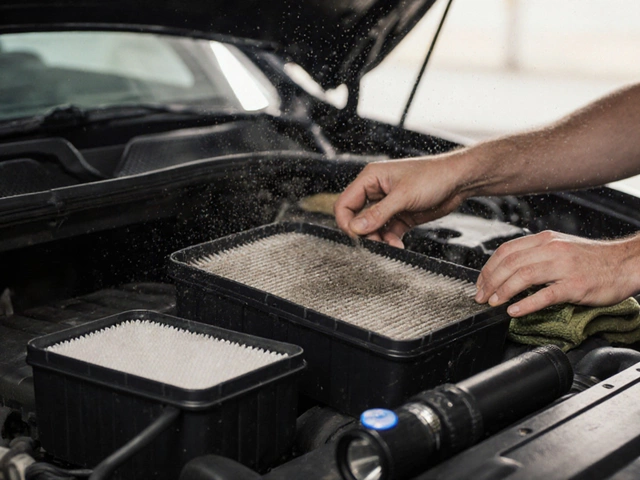
What Is the Proper Way to Install an Air Filter?
Tags
- car maintenance
- engine oil
- spark plugs
- brake pads
- engine performance
- vehicle maintenance
- spark plug replacement
- windshield wipers
- fuel pump
- suspension parts
- clutch replacement
- oil change
- clutch kit
- car performance
- air filters
- car suspension
- car radiator
- exhaust systems
- engine misfire
- fuel pump failure

0